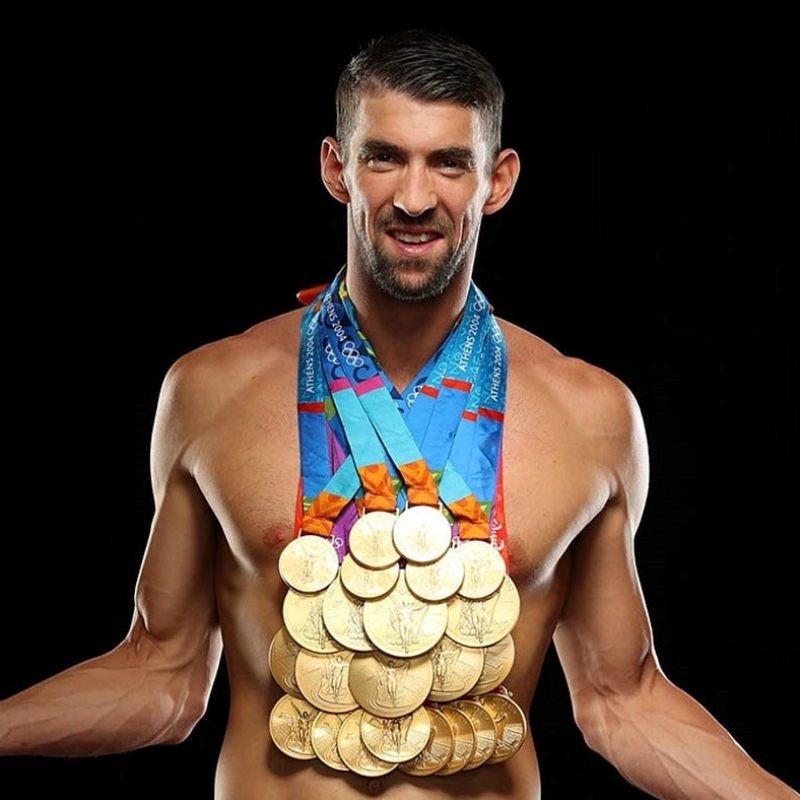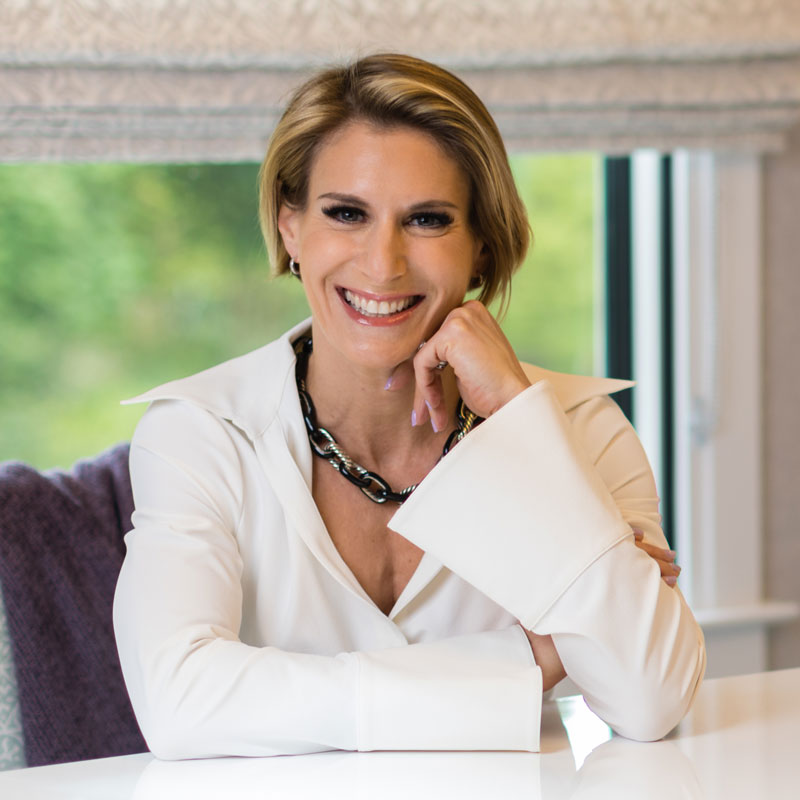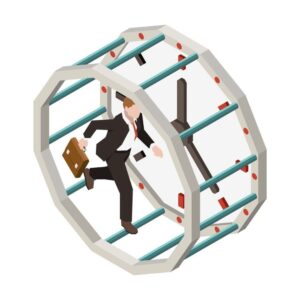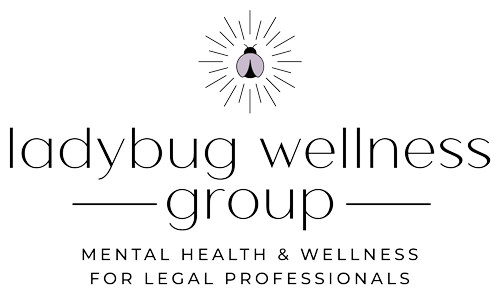“We’re human beings. Nobody is perfect. So yes, it’s ok to not be ok.”
~ Michael Phelps
What do lawyers, Hollywood actors, U.S. Congressmen, Olympic athletes, social influencers, and music superstars have in common?
This isn’t a riddle. There is a very real common thread:
Each of these groups suffers from high rates of mental illness. When it comes to depression, anxiety, substance use disorders, or other mental health conditions, lawyers are no different from athletes, politicians, or supermodels.
In the population at large, approximately 50 million – or 21% of – adults experience at least one form of mental illness. Over 12.1 million – or nearly 5% of – adults, moreover, have reported serious thoughts of suicide. We often assume that, because we are educated, professional, or privileged, we’re not at risk. This can’t happen in our homes, offices, or communities. The reality, though, is that these numbers are even greater in high pressure professions, such as sports, entertainment, and law. In fact, lawyers are twice as likely as other adults in the U.S. to contemplate suicide.
The most troubling part is that 55% of adults with a mental illness do not receive any treatment. Whether because of shame, fear, denial, or lack of access to mental health care, so many of us, our neighbors, our friends, our family members, and our colleagues are suffering in silence, without the support or treatment that they so desperately need.
Enter Michael Phelps, John Fetterman, Miley Cyrus, Lady Gaga, and growing numbers of other celebrities and public figures who have used their visibility and public platforms to give a voice to these issues, normalize their experiences, chip away at the stigma surrounding mental illness, and promote mental health treatment.

There is no need to editorialize, because the power lies in their own words.
On Struggling with Mental Illness
“I have such debilitating anxiety because of everything going on that I literally wake up in the middle of the night with full-on panic attacks.”
~ Kendall Jenner, Model
“I never, ever slept. Or I was sleeping at a perfect right angle – just sitting straight, constantly working at the same time… The expectations were eating me alive.”
~ Ryan Reynolds, Actor
“The first time I had a panic attack I was sitting in my friend’s house, and I thought the house was burning down. I called my mom and she brought me home, and for the next three years it just would not stop.”
~ Emma Stone, Actress
“I had really bad postpartum depression after I had my son, and it frightened me … I [still] can slip in and out of [depression] quite easily.”
~ Adele, Singer/ Songwriter
“When I walked out of the studio after five years of working so hard, knowing that I had been treated so disrespectfully for no other reason than I was gay, I just went into this deep, deep depression.”
~ Ellen DeGeneres, Comedian/ TV host
“At one point, I was, like, ‘What would happen if I just didn’t wake up?’ That’s how I felt. Like, ‘Maybe I should just take my life?’”
~ Nicki Minaj, Singer/ Songwriter
“There’s nothing weak about struggling with mental illness… For me, depression is not sadness. It’s not having a bad day and needing a hug. It [was an] utter sense of isolation and loneliness. Its debilitation was all-consuming, and it shut down my mental circuit board. I felt worthless … like I was a failure.”
~ Kristen Bell, Actress
“[Depression is] more of an issue than people really want to talk about. Because people don’t know how to talk about being depressed – that it’s totally ok to feel sad. I went through a time where I was really depressed. Like, I locked myself in my room and my dad had to break my door down… So many people look at [my depression] as me being ungrateful, but that is not it – I can’t help it.”
~ Miley Cyrus, Singer/ Songwriter/ Actress
“I [] just didn’t think it could happen to me. I have a great life. I have all the help I could need… But postpartum does not discriminate.”
~ Chrissy Teigen, Model/ TV Personality
“This depression get the best of me… It’s one of them tings that no matter how indestructible we look like we are, we’re all human at the end of the day.”
~ DeMar DeRozan, NBA Player (Chicago Bulls)
“I openly admit to having battled depression and anxiety… I think it’s better when we all say: ‘Cheers!’ and ‘fess up to it.’”
~ Lady Gaga, Singer/ Songwriter/ Actress
On Seeking Treatment
“[Therapy] has completely changed my life… I wish more people would talk about therapy. We girls, we’re taught to be almost too resilient, to be strong and sexy and cool and laid-back… We also need to feel allowed to fall apart.”
~ Selena Gomez, Singer/ Actress
“I’m on Lexapro, and I’ll never get off of it… I don’t see the point… [W]hat are you fighting against? Just the stigma of using a tool? A mental illness is a thing that people cast in a different category [from other illnesses] but … [i]t should be taken as seriously as anything else. You don’t see the mental illness: It’s not a mass… But it’s there. Why do you need to prove it? If you can treat it, you treat it.”
~ Amanda Seyfried, Actress
“For the longest time, I thought asking for help was a sign of weakness because that’s kind of what society teaches us. Well, you know what? If someone wants to call me weak for asking for help, that’s their problem. Because I’m saving my own life.”
~ Michael Phelps, Olympic Swimmer
“I feel like I learned the most about myself [when I withdrew from the team final in Tokyo]… How courageous, how brave I am. Because I always like to fake bravery. But I really think that solidified me being brave, speaking up for myself and just putting myself first.”
~ Simone Biles, Olympic Gymnast
“[E]very person can benefit from talking to somebody. I’m the most antimedication person, but some people need medicine, and there was a time where I needed some too.”
~ Miley Cyrus, Singer/ Songwriter/ Actress
“Since [I sought help for depression], what my psychologist has done is helped me with ways to cope, ways to recognize when I need to step back, take a deep breath, and let something go… Three years after I first sought help, I’m able to be myself.”
~ Allison Schmitt, Olympic Swimmer
“It started with me using my prescription pain pills for medical reasons, and then I started to abuse… As soon as I started talking about it, I immediately felt like this is what I’ve been needing to do. The number one thing anyone should ever say to somebody is that they’re not alone.”
~ Abby Wambach, Soccer Hall-of-Famer and Olympian
“I would not be alive, let alone in Congress, were it not for mental health care.”
~ Ritchie Torres, U.S. House of Representatives (D-NY)
“It felt like I was on a deserted island by myself, and it was always midnight. Just … dark. Dark and alone with my thoughts. Every. Single. Day… I needed medication. I needed therapy. I still need those things now, and I probably always will.”
~ Kevin Love, NBA player (Miami Heat)
“To make that decision to receive help is not a sign of weakness. In today’s world, more than ever, it is a sign of strength.”
~ Prince Harry
“I think everyone in the world either knows what it feels like to struggle with their mental health or they know somebody who is… The more that we can normalize the conversation for athletes and everyone else, I think the more people that can be helped.”
~ Aly Raisman, Olympic Gymnast
“I don’t care if you’re a liberal or conservative, Republican or Democrat, we all can be depressed — and we all can get made healthier… Go to the doctor or whoever you’re able to. Address your depression. I was skeptical it would make anything better, but it did. It works. And I’m so grateful.”
~ John Fetterman, U.S. Senator (D-PA)
“I got as close as you can get [to taking my own life]. I mean, just, like testing the waters… And until I met the right treatments and met the right doctors and did all the work that you need to do to, like, not feel that way, it got pretty dark and scary.”
~ Pete Davidson, SNL Comedian
“I felt like [a break] was necessary, but I kind of felt ashamed in that moment because as an athlete, you’re kind of told to be strong and push through everything, but I think I learned that it’s better to re-group and adjust the feelings you have in that moment and you can come back stronger… It’s O.K. to not be O.K., and it’s O.K. to talk about it. There are people who can help, and there is usually light at the end of any tunnel.”
~ Naomi Osaka, Professional Tennis Player

No one is immune from mental illness. Not Olympians, not Oscar-winning actors, not elected officials… and certainly not lawyers. These public figures, and numerous others, have confronted anxiety, depression, substance abuse, trauma, suicidality, and other mental health conditions. Rather than ignoring these issues, faking smiles, or suffering in silence, they have chosen to publicly acknowledge their struggles with mental health. They have taken time away from the court (Naomi Osaka), the Olympic arena (Simone Biles), the floor of Congress (John Fetterman), the stage (Pete Davidson), and the recording studio (Selena Gomez) to focus on their own well-being. They have spoken out publicly about the importance of mental health treatment. In professions where reputation and achievement are everything, they have put their mental health and wellness above tournament rankings, press conferences, music tours, and red carpet appearances.
And yet, lawyers, more often than not, are resistant to treatment, opting to ignore and conceal their mental health needs. As lawyers, we commit ourselves to helping others, but we don’t want to be seen as needing help ourselves. The truth, however, is that we cannot effectively help our clients if we don’t first help ourselves. By denying, hiding, or failing to address our mental health and wellness, we are risking both our own and our clients’ lives and well-being.
So be courageous. Look to your favorite NBA player, comedian, or pop star for inspiration. Acknowledge your struggle. Lean on those around you. Seek help. And, ultimately, become a healthier, happier, and more effective lawyer.
In the words of Dwayne Johnson (“the Rock”), “I found that, with [mental illness], one of the most important things you could realize is that you’re not alone. You’re not the first to go through it; you’re not going to be the last … I wish I had someone at that time who could just pull me aside and [say], ‘Hey, it’s gonna be OK.’”
YOU DON’T HAVE TO GO IT ALONE.









